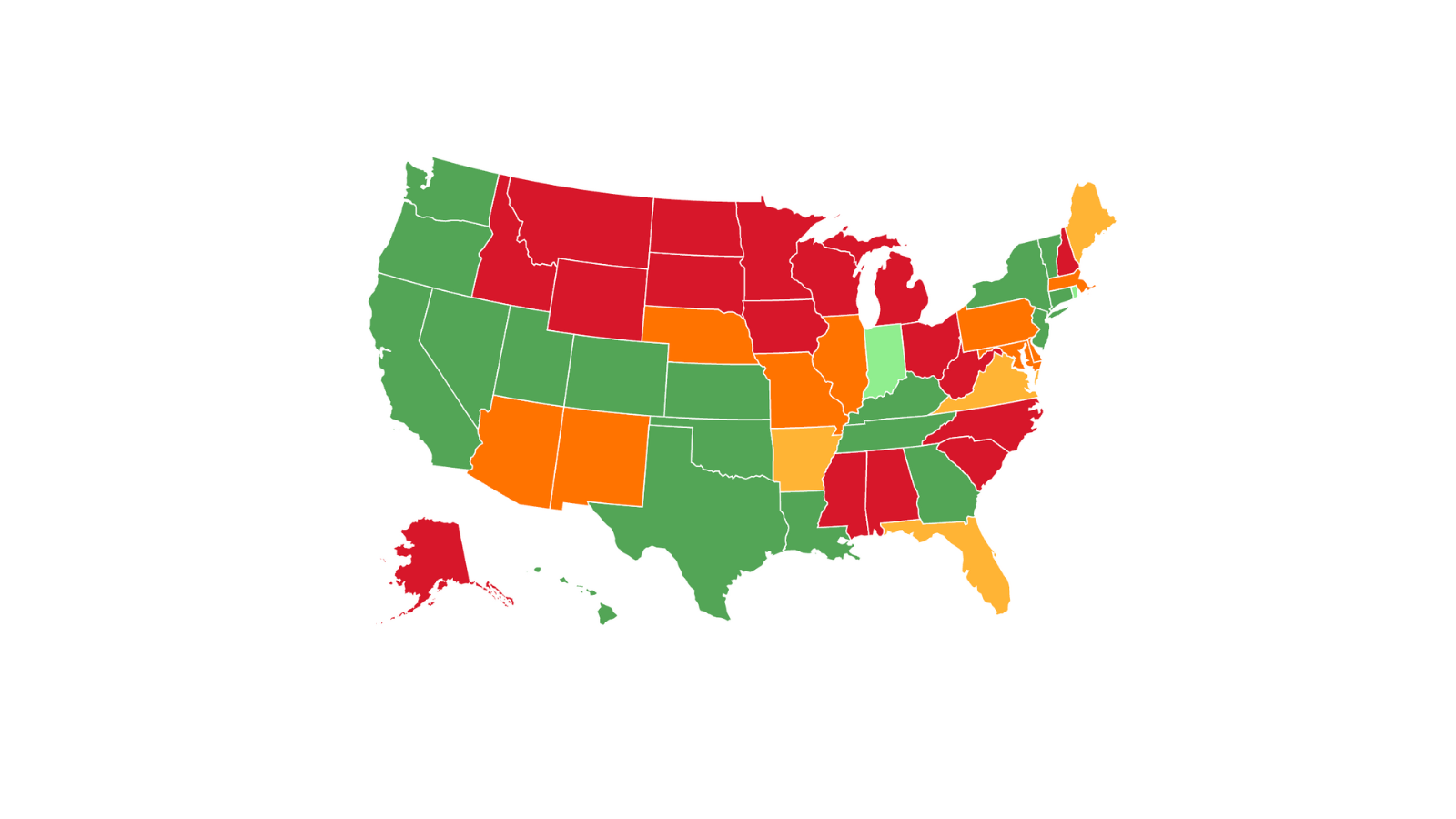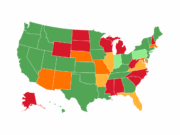Washington, D.C. – State laws protecting against costly, meritless, speech-suppressing lawsuits are growing and improving nationwide, now covering 33 states plus the District of Columbia. For the first time, most Americans have good protection. Yet, many states still have weak laws or no laws protecting their citizens from such suits, putting those Americans’ rights to speak or publish at significant risk.
Those are the key takeaways from the 2023 Anti-SLAPP Report Card, just released by the Institute for Free Speech.
The report details and rates state-by-state legal protections against “SLAPP” suits, which stands for “strategic litigation against public participation.” Unscrupulous plaintiffs abuse the legal system by using SLAPPs to prevent speakers from exercising their First Amendment rights, suppressing, punishing, or chilling speech that the plaintiff doesn’t like. Such a litigant typically claims that the speech constitutes defamation, suing speakers to harass, silence, or force them to bear significant litigation costs.
Anti-SLAPP statutes provide protections against these suits, but the strength of those protections varies widely from state to state. Thankfully, the Institute’s new report shows a trend toward more and stronger anti-SLAPP laws. Top-line points in the report include:
- For the first time, over half of the American population resides in a jurisdiction with a good anti-SLAPP law, meaning a grade of “B” or better on the Institute’s rating scale
- 79% of the American population is now covered by an anti-SLAPP law, a record high
- Just since the 2022 report, ten states have improved their anti-SLAPP grades
- In all, 18 states now have some form of “A” grade
- Two states plus D.C. fall in the “B” range
- Four states have “C” grades
Yet, there is much work left to be done. Nine states still have a grade in the “D” range, while 17 states receive “F” grades for having no anti-SLAPP law.
One key catalyst for improvement has been the respected and nonpartisan Uniform Law Commission creating its model anti-SLAPP law, the Uniform Public Expression Protection Act (UPEPA), in 2020. This model law has already helped lead to excellent new or revised laws in six states since the 2022 report.
“The progress we’ve seen in recent years is a welcome trend, but there are still too many states in which plaintiffs with deep pockets can threaten critics with financial ruin if they don’t shut up,” said Institute for Free Speech President David Keating, also one of the report’s co-authors, along with Helen Knowles-Gardner and Dan Greenberg. “A strong anti-SLAPP law is one of the best and easiest protections for free speech states can provide. Every state should have one and should make sure that its law covers as much speech on matters of public concern as possible.”
Indeed, one of the failures of many weak anti-SLAPP statutes is a limitation on the type of speech covered. Eight of the nine states with “D” grades would rise to at least a “B-” by using UPEPA’s definition of protected speech.
In recent years, beneficiaries of robust anti-SLAPP laws have included journalists, environmental activists, citizens speaking at government meetings, conservative Christians, Hollywood filmmakers, scientists, people leaving Yelp reviews, people who post on social media, podcasters, anti-abortion groups, labor unions, public officials, community advocates and more.
The broad impact of SLAPPs, punishing and suppressing speakers of all kinds, is one reason strong anti-SLAPP laws often enjoy nearly unanimous bipartisan support when adopted.
“The improvements in anti-SLAPP protections in several states across the country are encouraging,” said Institute for Free Speech Research Director and report co-author Helen Knowles-Gardner. “We hope that the remaining low-rated states will soon act to create or improve essential free speech protections against SLAPPs.”
The full report, including a detailed breakdown of each state’s laws and accompanying score, is available here.
About the Institute for Free Speech
The Institute for Free Speech promotes and defends the political speech rights to freely speak, assemble, publish, and petition the government guaranteed by the First Amendment.














